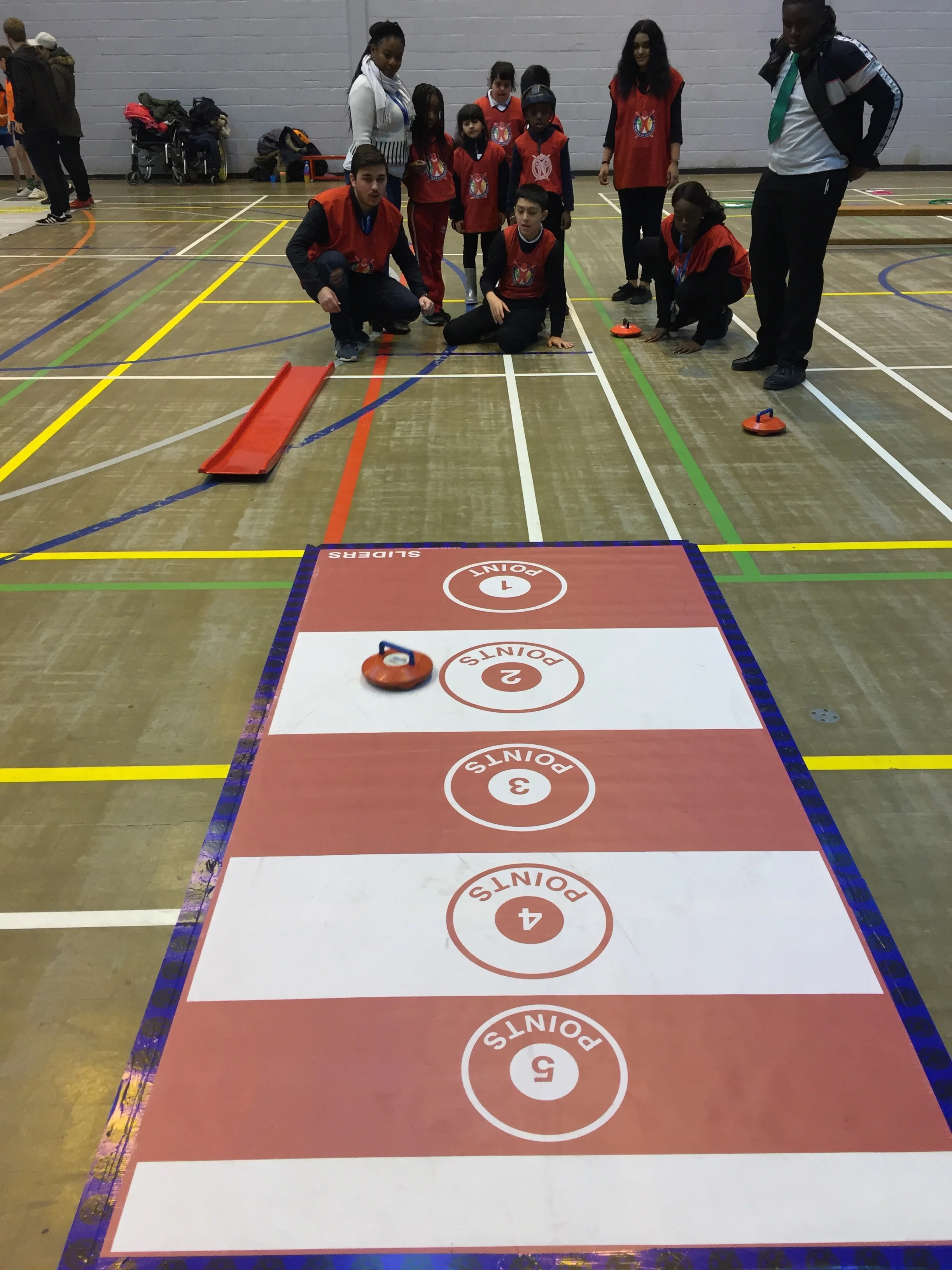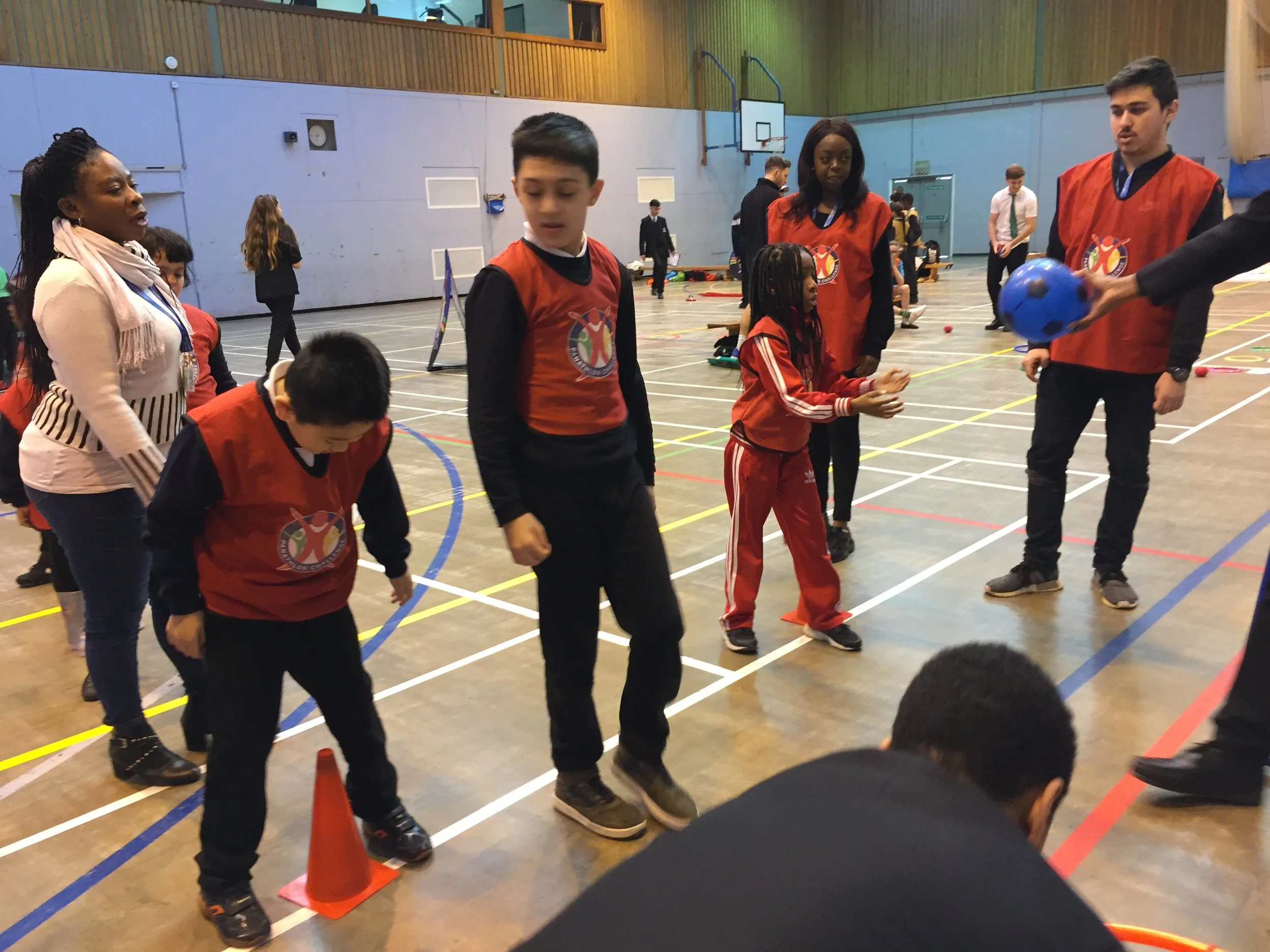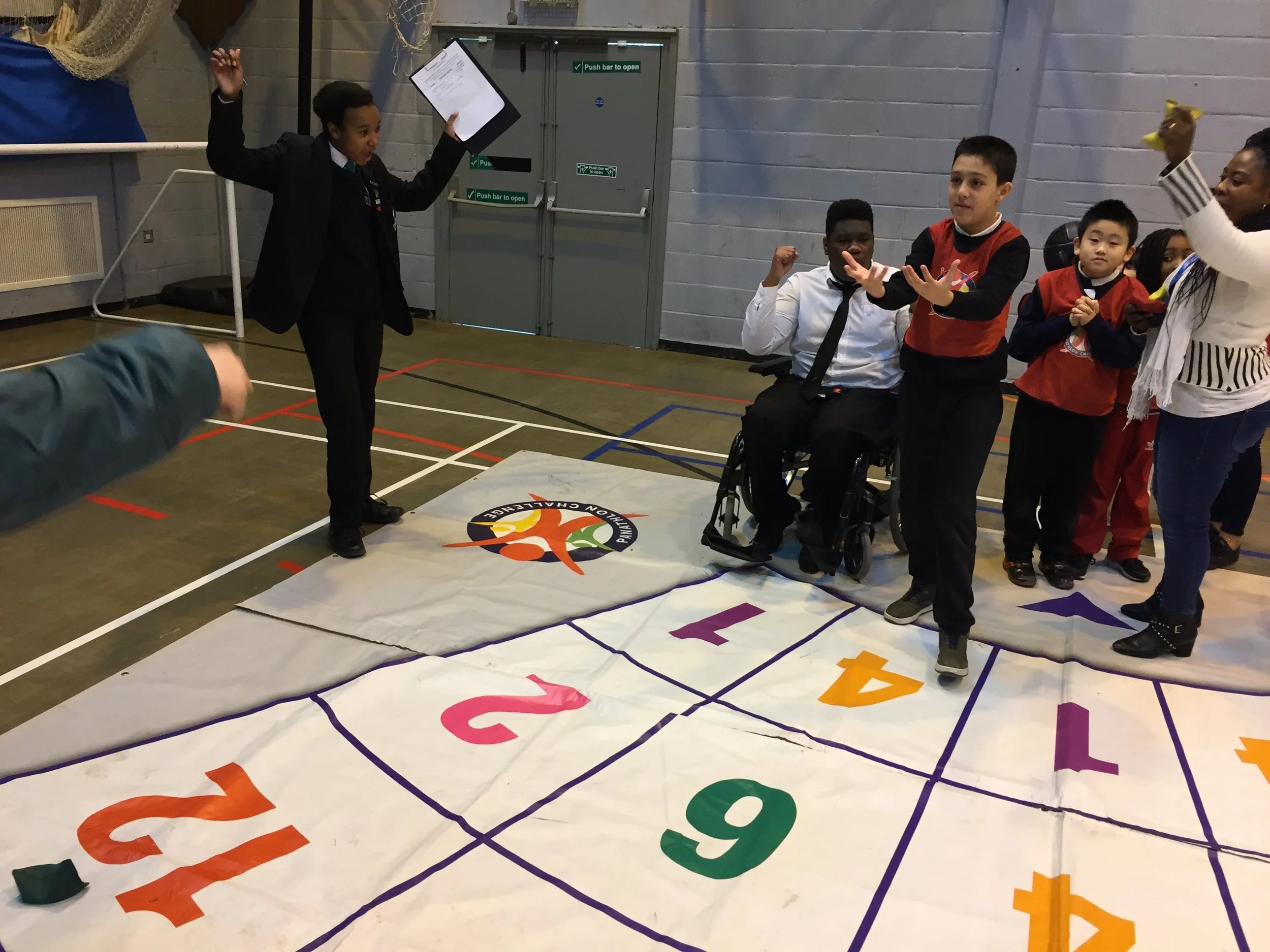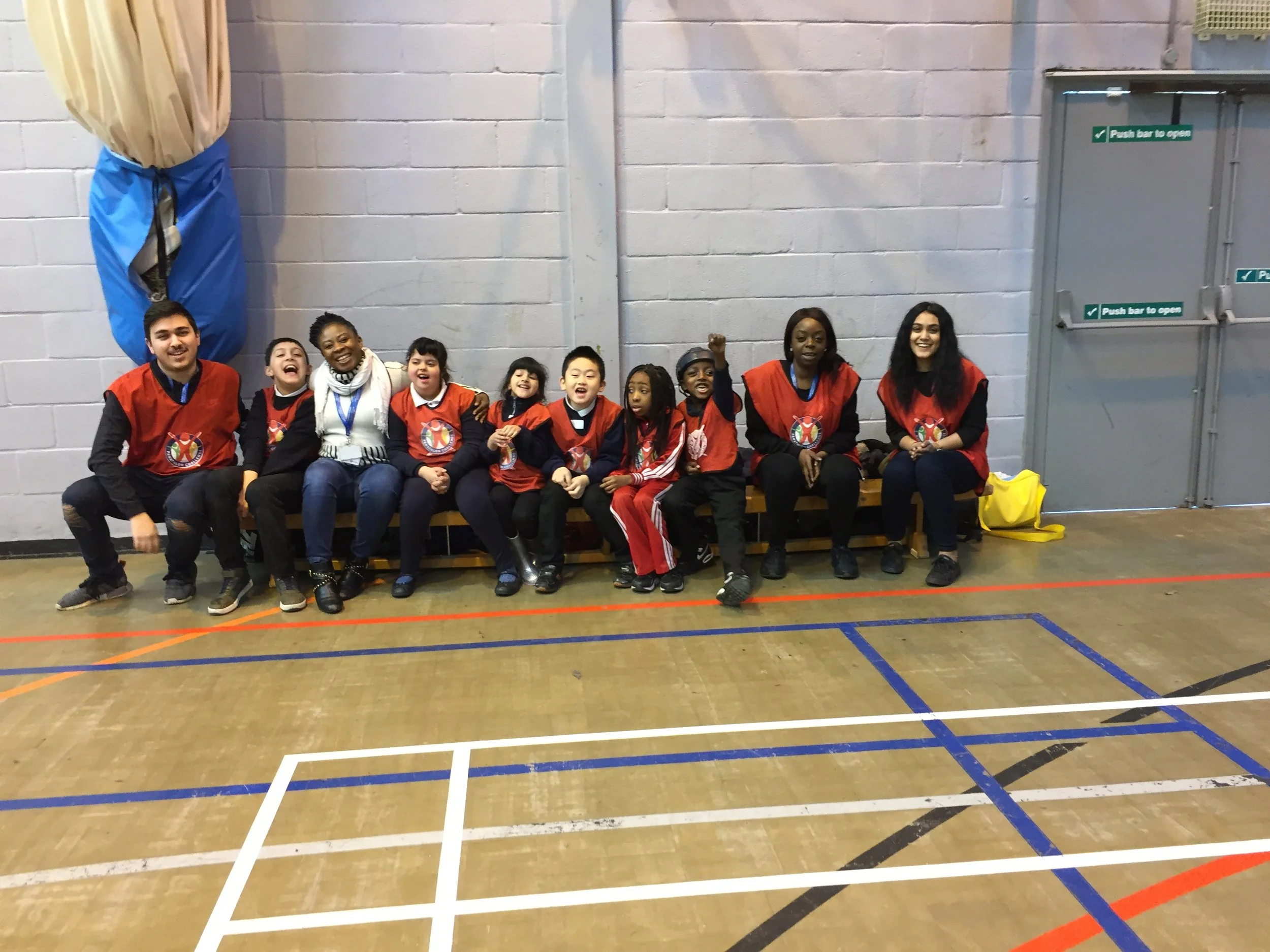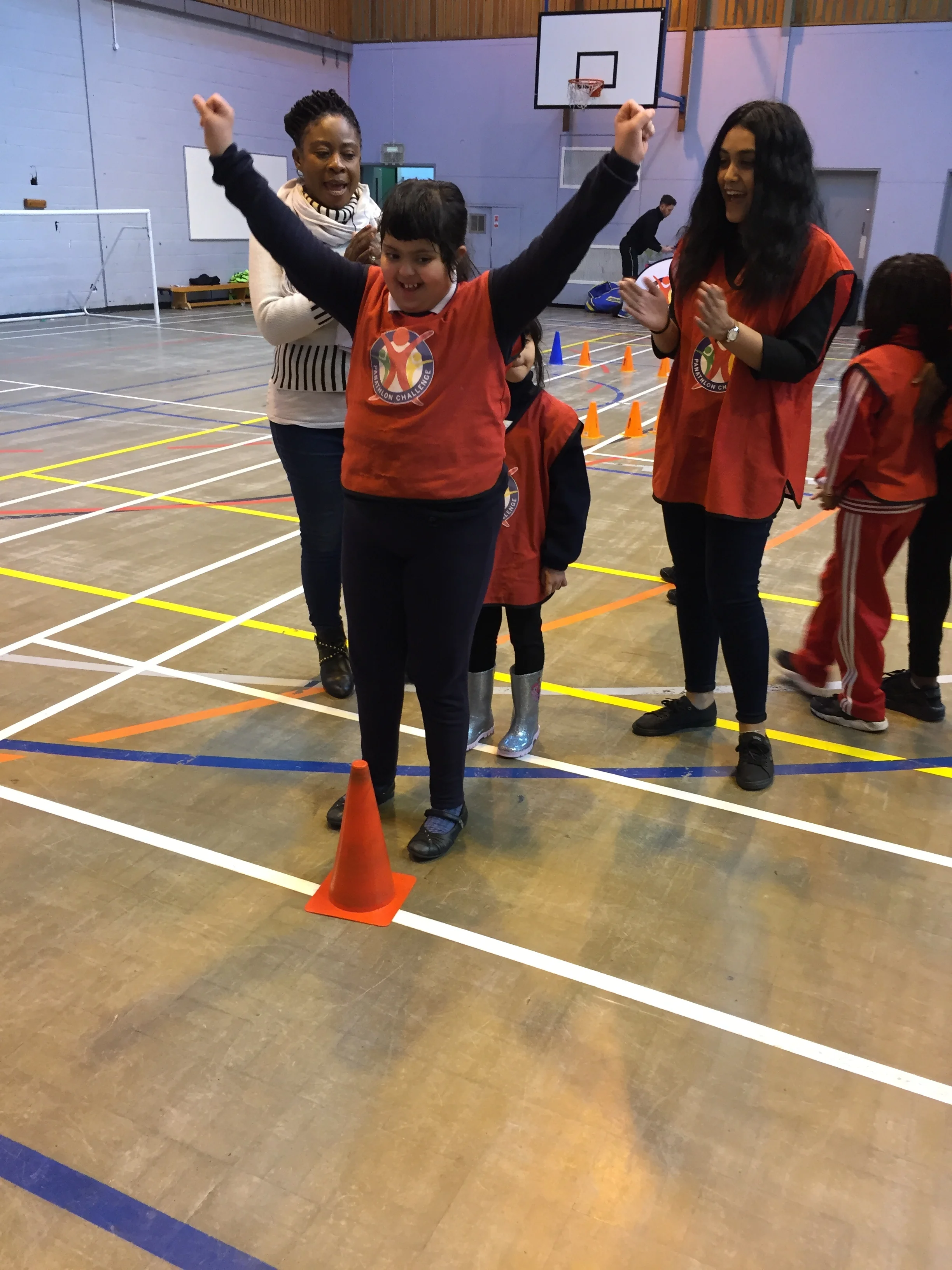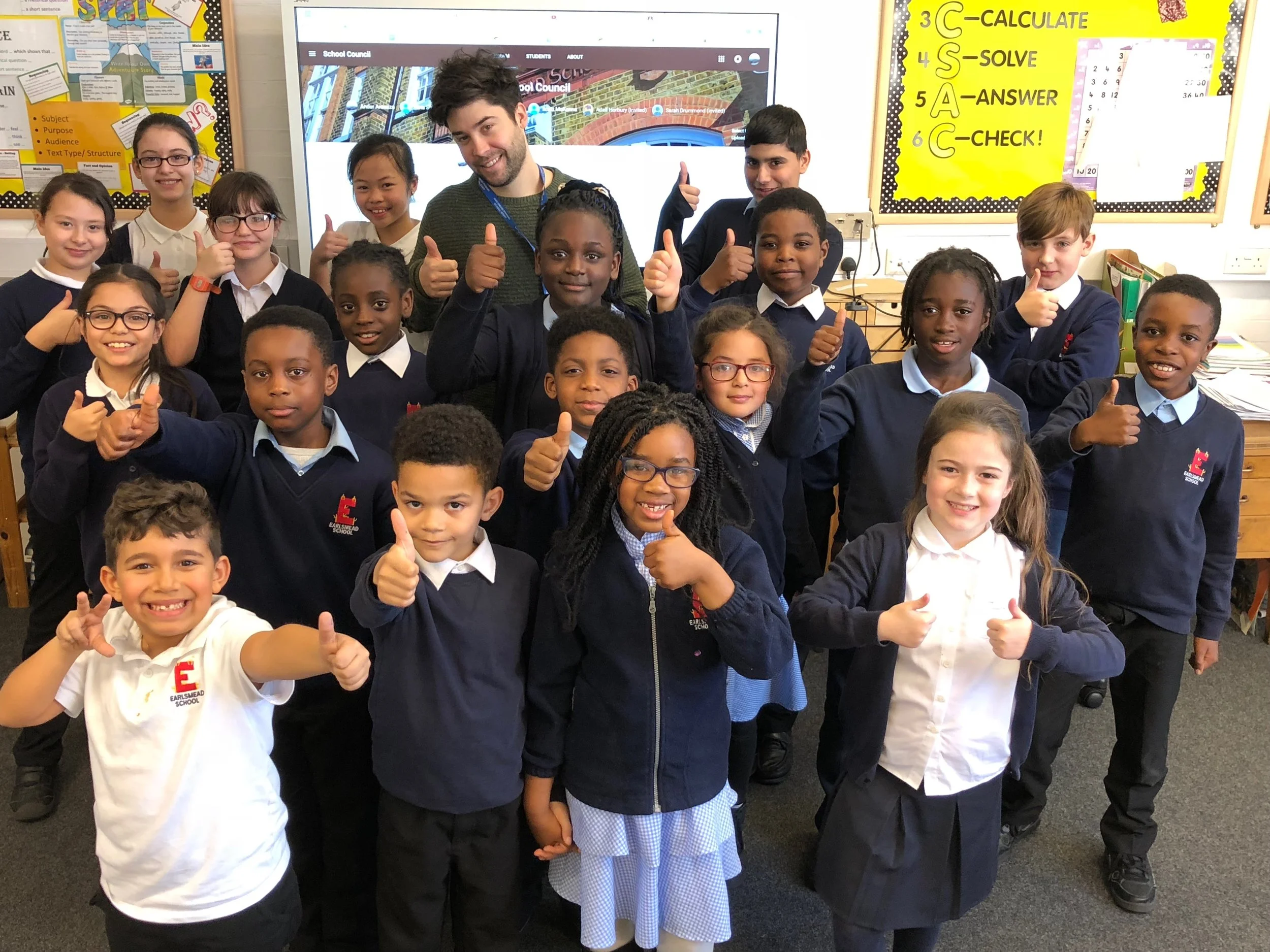The Primary Pentathlon is yearly event run by The Vale School at Northumberland Park. It is a sporting event where everyone who attends can take part in 10 different activities. This year Sokaina, Adem, Natalia, Jaison, Joy and Sherif all took part and gained a medal. We are very proud of them and are glad to be invited to this event by our friends at The Vale School.
Special reading events at Earlsmead this week!
Please remember our ‘Read and Fun-athon’ this Thursday afternoon. Please bring in your PE kits and your favourite book. Get some sponsors for books for our library if you can.
Friday 8th March is our Book Swap after school. Bring some books you would like to swap with your friends. We will have some books if you do not have any you wish to swap.
School reopens Monday 5th March
We welcome back all staff and students on Monday 5th March as school and all after school clubs are open as usual.
School will close tomorrow, Friday 2nd March
There was much excitement when the snow first fell and the sun was shining yesterday - both staff and pupils had a great deal of fun. However conditions have worsened since then as a result of wind and ice so it feels much colder today. Children will not go out into the playgrounds today even for a reduced playtime.
We have made the decision to close the school tomorrow due to the adverse weather conditions and the likelihood of further widespread snowfall accompanied by strong winds that has been forecast for Friday.
This is a decision that is not taken lightly and is based on a number of factors to ensure the health and safety of our pupils and staff.
Whilst main roads are gritted and traffic and pedestrians are able to move freely, side roads and pavements in the area may not be gritted so are very icy.
When deciding whether the site and surrounding areas are safe for the school to open, some of the factors that are taken into account include: Can pupils, parents and carers travel to school and go home safely? Can staff travel to and from school safely?
Looking at forecasts I am confident that the school will be open as usual on Monday 5th March but I will update the school website to confirm this on Sunday evening. Please travel home safely today and keep warm.
Snow update Thursday 1st - school open but clubs cancelled
Thursday 1st March
The school will be open today. Please ensure children are dressed appropriately for the very cold weather. Depending on how the day progresses, children will either stay inside during break times or have reduced time outside.
There will be no after-school activities today. This includes After School Club, Year 6 Booster Classes and Choir.
We are open!
School is open today. We will be keeping a close eye on weather forecasts over the next couple of days and will keep you informed of any changes on the website. In extremely cold weather children have reduced out door play. Please make sure children are appropriately dressed for the weather.
Year 4 Swimming Cancellations
Due to the current weather forecast bringing unpredictable snow showers, a huge drop in temperature and the freezing wind chill we won’t be taking either Year 4 class swimming this week (Wednesday 28th February and Thursday 1st March).
Swimming will continue as normal the following week unless we contact you again.
Many thanks for your ongoing support.
Celebrate World Book Day on 1st March 2018
Are you looking for your first teaching job?
New Mobile Phone Policy - Important Changes for Students
Since September we have been in consultation with parents, carers, staff and children to put together a new policy with guidelines on mobile phone use. The School Council has been particularly engaged in thinking about this and their views and ideas have very much been incorporated into the new policy.
The main changes are:
Children from Nursery to Year 3 are not allowed bring a phone to school at all.
Children from Year 4-6 are only allowed to bring in a mobile phone if they walk to and from school without adult supervision and have the written permission of their parent or carer (the permission letter is in the policy appendix). At school, the phones will be stored in a locked locker in their classrooms and cannot be used anywhere on the school premises. This includes the playgrounds before and after school.
The policy outlines very clearly the ways mobile phones are misused and how the school, parents and carers can reduce this risk along with consequences that the school will apply if this is found to be the case.
The new policy will come into effect on the 19th February 2018.
Safer Internet Day 2018 #SID2018
Safer Internet Day is being celebrated around the world and in our school on Tuesday 6th February 2018.
The theme is Create, connect and share respect: a better internet starts with you.
Everyone has their part to play in making the internet a better place, including you!
Students
Have a look at the tips and resources below to help you make a positive change online, stay safe and help your friends.
A better internet starts with you...
It starts with staying safe online.
Keep your personal information safe and check with an adult before you share anything online. Personal information includes your email address, phone number and passwords. Never agree to meet up with someone you only know online. No matter how friendly they might seem or how well you think you know them, they are still a stranger. Always tell a trusted adult if someone online asks to meet up.
It starts with being a good friend.
Remember that behind every screen is a real person. Being kind and positive online is just as important as being kind and positive face-to-face.
It starts with saying sorry.
Even when we’re trying really hard to be a good friend online, things can still go wrong. If you ever upset someone online, even if it wasn’t on purpose, then saying sorry is a really powerful and positive action to take.
It starts with taking a step back.
Being online is great – there are so many fun and exciting things to do! But being connected all the time can get a little stressful. If being online is making you feel worried, upset or confused, it’s always worth taking a step back and having a break from your online activities. Check out Red and Murphy talking about this in this special SID TV video.
It starts with asking for help.
It’s okay to feel worried or upset by something you see online – just make sure you speak to someone about it! Always tell an adult you trust if you see anything that worries you online.
Are you an online expert? Get ready for Safer Internet Day 2018 by testing your knowledge with the #SID2018 Quiz.
Parents and Carers
Have a look at the tips and links below with some suggestions on how to get started with supporting your child to stay safe and positive online.
A better internet starts with you...
It starts with an open and honest dialogue.
Talk regularly with your child about how they use technology, and find out what their digital life is like, including what their favourite sites and services are and also how being online makes them feel. Not sure where to begin? Have a look at our suggested conversation starters for parents.
It starts with a balanced approach.
As parents, it’s natural to feel worried about the risks posed by your child being online, but for young people, the online world is exciting and fun, as it brings so many opportunities for them. Connect with your child by asking them to share with you their favourite things to do online, as well as discussing the risks they might come across. Use our quick activities as a family this Safer Internet Day.
It starts with using the tools available to help you.
There are lots of tools to help you manage the devices used by your family. For example, knowing how to activate and use parental controls can help protect your child from seeing inappropriate content online. For advice and guidance on how to make use of parental controls and other safety features on devices, check out our free Parents’ Guide to Technology and see more advice in our advice centre for parents and carers.
It starts with knowing where to get help.
It can sometimes feel like young people are the experts in all things online, but remember – you are the life experts. You are always there to help your child but make sure you know how to get support too by visiting our Need Help? page. You can find more information about how you can help your child stay safe online by using features such as privacy settings on social media and understanding how to make a report on a range of apps, games and services.
It starts with a family agreement.
The online world is an increasingly large part of modern family life, so it makes sense to approach it as a family too. Why not make a pledge together on how as a family you’re going to use the internet safely and positively? If you need help with this, have a look at our family pledge card for a great way to ensure that everyone is on the same page.
Our February Newsletter
We’re counting down to Number Day 2018!
We are delighted to be supporting the NSPCC by taking part in their Number Day on Friday 2 February 2018.
Children deserve an equal start in life
The NSPCC believes that all children deserve a childhood free from harm but, sadly, that’s not the case for many children. That’s why the NSPCC is fighting for every childhood and working to help keep children safe from abuse.
The NSPCC needs our support. By raising money, we can help to fund their vital services like ChildLine – the helpline that’s always there for children and young people whatever their problem or concern.
Making maths meaningful
Number Day is a great way to make maths fun and bring about a positive, ‘can-do’ attitude towards it.
On 2 February we will be taking part in The Great Earlsmead Number Challenges!! Pupils will be learning number facts and times table facts to complete their year groups timed challenges. To help raise money for the NSPCC, we are asking for families and friends to support and encourage children to complete their number challenges by making a donation.
Also on that day, we’ll be taking part in Dress up for Digits and pupils will be invited to wear number themed fancy dress or an item of clothing with numbers, shapes or patterns on it. To help raise money for the NSPCC, we are asking for a suggested donation of £1, we’d love everyone in the school to take part!
It all adds up
We’re looking forward to all the fun of Number Day, and we really appreciate your support. All the money we raise will make an enormous difference to children today and help change the lives of children tomorrow.
You can find out more about the NSPCC’s work at nspcc.org.uk
Many thanks for your continued and appreciated support. If you do have any queries or questions, please don’t hesitate to contact me.
Adell Horbury - Assistant Headteacher
Visit from the London Fire Brigade
Years 5, 2 and 1 had a visit from the London Fire Brigade. The special sessions explained what the Fire Brigade do to protect us all and what we should do if we are near a fire. All the children were told to go home and tell their parents and carers to check their fire alarms weekly or buy one if they do not have one.
Snapchat: A Guide for Parents and Carers
What is Snapchat?
Snapchat is an app that lets you send texts, pictures, and videos that you program to disappear after a few seconds. Snapchat also offers fun, easy-to-use instant-editing tools that let you add cool effects to your "Snaps," such as captions, drawings, and emojis. There’s also a feature called Snapchat Story that lets you share snaps in a sequence for up to 24 hours.
Should I let my child use Snapchat?
The fact that the messages don't last makes texting feel like a game, and it offers a sense of freedom: children can share the silly, fleeting moments of the day that don't rise to the level of other social media posts that documents their lives. On the other hand, they may be tempted to share riskier images, thinking the pics will go away.
Parents and carers should be aware that it's not actually true that Snaps disappear forever. You can purchase additional "Replays" -- though you're limited to one Replay per Snap. It's also possible that the receiver could take a screenshot using his or her phone or another app to capture Snaps. So children really need to use good judgment about what they send.
Snapchat’s own terms of service state that users must be at least 13 years old to use the app. At Earlsmead we believe Snapchat, and other messaging apps, are better for older, more mature children who can regulate their own usage and know how to share responsibly and respectfully. Still, you may not be able to stop your child from downloading the app (or using it on their friend's' phones), so it's best to discuss how to use Snapchat responsibly.
Using Snapchat responsibly
Snapchat, like other social networking apps, is designed to share moments with “real life” friends but there is still the danger that children may connect with people they don’t know. Encourage your child to only share content with their “real friends” and share things they would be happy to share with you.
Snap maps enable a user, if you and a friend follow one another, to share their locations with each other so you can see where they are and what’s going on around them. As this new feature shows your precise location pinpoint on a map – we would encourage users not to share their location, especially with people they don’t know in person.
Use this opportunity to discuss limits with Snapchat and other apps: During what hours are they allowed to text? How much screen time are they allowed? If you want to monitor your child's mobile phone without seeming intrusive, be honest about what you're doing and why.
Want to set up parental controls? Take a look at a guide here internetmatters.org/parental-controls/interactive-guide/
Feedback from e-safety coffee morning
Thank you so much to all the parents and carers that came to the e-safety coffee morning, it was a great turnout. There were many interesting conversations about what we can do at school and at home to help foster a more supportive digital environment for children and young people to grow up in.
Here are the key points from the morning:
- A draft mobile phone policy was discussed. It was agreed that it would be a good idea to stop allowing students to bring mobile phones to school unless they had written permission and were allowed to walk to and from school on their own.
- Parents and carers thought it made sense to keep all mobile phones in the office and then hand them to the children just before they left the site. This would reduce the chances of incidents in the playground.
- It was suggested that the policy should include guidelines as to what safe and correct mobile phone usage looked like. Parents and carers wanted to also acknowledge the many benefits mobile phones and the internet can bring to safety and education.
- Parents and carers were keen to work alongside the school in educating the students about online safety. They would like to be invited to future e-safety assemblies and have more information on what e-safety lessons were being taught at school so they could reinforce the messages at home.
- A key talking point was how important it is to be informed about what children are doing online. This can be done by parents and carers concentrating efforts on keeping the lines of communication open, so children will come to them if a problem arises. Make sure children know it's OK to make mistakes and that they don't need to hide these.
If you want any more information please take a look at our Internet Safety page and if you would like specific help with a problem please don't hesitate to contact the office and ask to speak to Mr Orr.
Meet our school council
We have a very active school council that meet on Fridays to make important decisions for the school. You can kind out more information about them and meet our Head Boy and Head Girl on the school council page.
E-safety Coffee Morning Tuesday 23rd January 9:00am
GDPR Information for Parents/Carers
General Data Protection Regulation – Parent/Carer information
We need to hold personal information about your child on our computer system and in paper records to help us with their educational needs. Your Headteacher is responsible for their accuracy and safe-keeping. Please help to keep your child’s records up to date by informing us of any change of circumstances.
School staff have access to your child’s records to enable them to do their jobs. From time to time information may be shared with others involved in your child’s care, if it is necessary. Anyone with access to your child’s records is properly trained in confidentiality issues and is governed by a legal duty to keep their details secure, accurate and up to date.
All information about your child is held securely and appropriate safeguards are in place to prevent accidental loss.
In some circumstances we may be required by law to release your child’s details to statutory or other official bodies, for example if a court order is presented, or in the case of public educational issues. In other circumstances you may be required to give written consent before information is released – such as the educational reports for insurance, solicitors etc.
To ensure your child’s privacy, we will not disclose information over the telephone or fax unless we are sure that we are talking to you - the parent/carer. Information will not be disclosed to family and friends unless we have prior written consent and we do not leave messages with others.
You have a right to see your child’s records if you wish. Please ask at the school’s office if you would like further details. An appointment will be required. There is usually no fee payable.
Soccer Kidz returning Wednesday 10th January
Great news, Soccer Kidz football club will be starting again on Wednesday 10th January!
Children who already attend will have received letters to sign up for the next block.
If you’d like to join and sign up for the next block for the first time, letters can be collected from the office.


